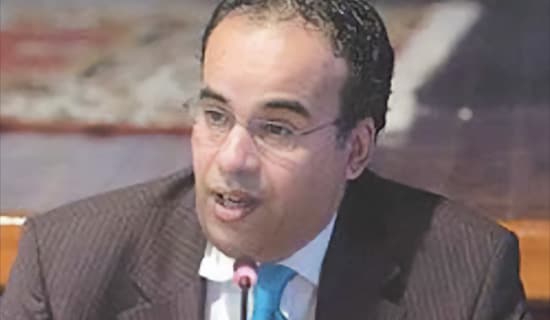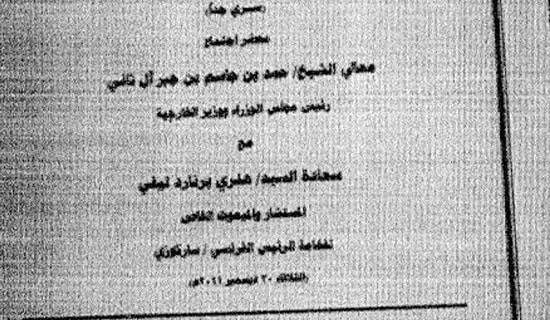Introduction
In an August 22, 2017 interview on IRINN TV, Ali Akbar Salehi, head of the Atomic Energy Organization Of Iran (AEOI) and a member of Iran's nuclear negotiating team, reiterated the threats made by President Rohani on August 3, 2017 regarding Iran's ability to quickly revive its nuclear program at the point it was left prior to the JCPOA. He said that Iran will be able to start enriching uranium to 20% in the Fordo facility within only five days, and that it can also reactivate the old reactor in Arak, because cement was poured not into its core but only into a few external pipelines that are easily replaced. He also voiced vague threats about making structural changes to the AEOI that would enable it to function in ways that would "surprise" the West.
The following is a translation of his statements in the interview:
Under The JCPOA, We Have Maintained The Fordo Facility So We Would Be Able To Start Enriching Uranium To 20% Within Five Days
"In a recent open-door Majlis session, President [Rohani] warned America about violating the JCPOA and about [Iran's] restarting its nuclear program. This was no hollow or baseless warning, but was based on data available to the president. The president and other regime elements receive information on the activity of the AEOI, [for] we are required to report to and update the officials on the necessary [levels of] readiness, so that if they want to take a decision [on this] they will know what the situation is. Rohani's statement was based on the readiness that has been reached.
"[We] regard the maintaining of the Fordo facilities as a point of strength in the JCPOA, whereas they [the U.S. and EU3] did not even want the Fordo [facility to] exist and said we had to shut it down. [Newspaper and television] reporters are supposed to visit the various areas of this [Fordo] facility. If you have archive photos [of it], you can see how much the facility has changed and what activities are taking place, especially in the field of stable isotopes and in the various labs. We maintained Fordo in the JCPOA so that if we want, we can start enriching [uranium] to 20% within five days."
We Decided To Publish Photos Of The Renewed Reactor In Arak; We Poured Cement Only Into Some Of Its Pipelines, Not Into Its Core
"Certain people [i.e. critics of the JCPOA among the ideological camp] said that our nuclear industry has been paralyzed, and that it has been shut down and that [the West] has taken it [away from us], and even if you swear [that none of this is true], it is no use. That's why we decided to present photos of the renewed reactor in Arak [to the public]. [The critics] presented photos of the pit that had been filled with cement and claimed that we had poured cement into the core of the Arak reactor. Those pictures are photoshopped, and [the people who presented them] must apologize and confess that they are deceiving public opinion with falsehoods.
"We [actually] poured cement only into some of the reactor's pipelines, [pipes] several centimeters in diameter and two to three meters long. [We poured it] not into the reactor itself but [only] into the external pipes. If we are instructed to restore the former reactor and advance the former program that is unsuitable to [the present time] and is 40 or 50 years out of date, we will remove the front and back parts of these pipes and put in new pipes, which will take only several months. They made so much noise [about this], and we said nothing [at the time], out of humility, or if we said something nobody listened to us. That's why we have decided to present photos of the reactor [to the public].
"If we want to, we can start enriching [uranium] to 20% within five days, and that is very significant. This move sends various technical and professional messages, and the other side [the U.S. and the West] understands them."
"We Worked Hard To Attain The JCPOA And It Was Not Easy For Us"; "We See It As [An Achievement] For Our National And Regional Interests"
SUPPORT OUR WORK

"We have further assessments that cannot presently be published, but whenever the [Iranian] team overseeing the JCPOA takes a decision and informs the AEOI about it, we will inform the public. You should know that we can change the structure of the AEOI within six months. The organization pursues its activities routinely. But if we want to respond and challenge [our rival], for us six months is a long time and we will surely surprise them.
"The Western elements [themselves] recognize [the situation] and whenever someone [in Iran] talks [about Iran's nuclear capability] they say that he's right. We do not want [to get to] a situation [in which we will revive our capability, since] we worked hard to attain the JCPOA and it was not easy for us. We agreed to the JCPOA and we are meeting its requirements. We want it to remain valid and we see it as [an achievement] for our national and regional interests..."
"It Is Our Top Priority To Preserve The JCPOA... But If They Want To Harm It... We Will Do Something To Surprise Them"
"I warn [the U.S.] that if they violate the JCPOA, North Korea will say that the Americans do not meet their commitments. Therefore, assuming that [the Americans] want to resolve the issue of that country [North Korea] diplomatically and scientifically, if America violates the JCPOA, it will be lesson to [North Korea, which] will say, 'You [Americans] arrived at an agreement with Iran, and Iran is persisting in preserving it. Why have you violated it?' It will say: 'What guarantee is there that you will [meet your obligations in an agreement] with us?
"If the JCPOA is violated... the confidence in countries such as America will be disrupted... Everything will be disrupted, and particularly the political logic in the world will be disrupted. The confidence in America will be harmed, and even though we ourselves do not trust America, those [countries] that still do will lose that trust.
"It is our top priority to preserve the JCPOA, but not at any price. If the other side continues with the JCPOA, all the better. We too will continue [with it], but if they wish to harm it, [we have] already issued a warning. I hope that such a day does not come, because [if it does] we will do something to surprise them.
"Iran's nuclear plans and activity are continuing. Russia is constructing two new reactors at Bushehr, at a cost of €8.4 million, and the work is moving along nicely. The work in the discovery and mining [of raw uranium] is advancing; when the results meet the predictions, we will issue an update.
"The research and development work is also going well. The IR8 centrifuge has passed all the mechanical tests with flying colors and this exceeds our expectations.
"Also with regard to the nuclear fuel, great strides have been made, and this is a long-term, 10- to 15-year project. We are working seriously on this, but it is not possible to obtain rapid results. Only four or five countries in the world have this technology, and the only developed country in the world that recently managed to attain results in the sphere of nuclear fuel is India, and this came after 20 years and with collaboration with Russia."[1]
Implications And Assessment
The threats by President Rohani and AEOI head Salehi must be understood against the backdrop of the recent U.S. sanctions on Iran's missile program and Iran's fear that the Trump administration aims to exit the JCPOA.
It should be emphasized that Salehi's threat that if it does then Iran too will exit the agreement is an empty one. He himself said in another interview, on August 27 with the Iranian Al-'Alam channel, that "if America and the EU exit the JCPOA, Iran will also, but if the rest of the 5+1 members do not, and only America does, then Iran will not [either]."
In our assessment, Iran will never on its own initiative back out of the JCPOA, because the agreement confers upon it three historic strategic achievements:
a) Immunity from an attack by Israel
b) The status of a recognized international nuclear power
c) A clear path to continuing clandestine nuclear activity because the inspection procedure set out in the JCPOA precludes actual inspection (see MEMRI Inquiry and Analysis No. 1325, Discussion Of Iranian Violations Of JCPOA Is Futile; The Inspection Procedure Designed By The Obama Administration Precludes Actual Inspection And Proof Of Violations, August 18, 2017).
Accordingly, the JCPOA is an essential part of the survival of the Iranian regime (see MEMRI Inquiry and Analysis No. 1306, Iran Will Not Cancel The JCPOA – Because It Grants Iran Nuclear State Status And Is A Western Guarantee For The Regime's Survival, April 6, 2017).
Salehi's announcement that Iran is capable, within just five days, of returning to enriching uranium to 20%, coupled with his rebuttal of the IAEA's previous confirmation that the reactor's core is no longer operable, clearly attests that Iran retains nuclear capability that the JCPOA did not eliminate, and that Iran continues to constitute a military nuclear threat despite the agreement.
This means that despite its claims that it has no interest in military nuclear development, the Iranian regime is continuing to threaten to use this option, while it prevents actual inspection of its military facilities where suspect activity took place in the past.
*A. Savyon is Director of the MEMRI Iran Studies Project; U. Kafash is a Research Fellow at MEMRI.*
[1] ISNA (Iran), August 22, 2017.




